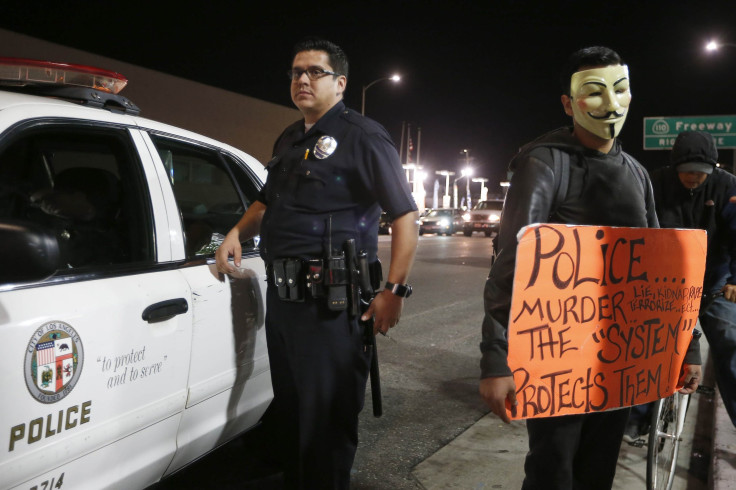Ferguson Witness Testimony Shows Distrust Of Police

None of them knew Darren Wilson, but they were all familiar with Ferguson police. Witness testimony from the grand jury deliberations on the death of Michael Brown released Monday night underscores the racial tension between residents and police in the segregated Missouri city. People who saw Wilson, who is white, fatally shoot Brown, who was black, told the 12-person panel about their personal experiences with local officers, which they said impacted their views of the case and decisions to come forward.
"I've seen the Ferguson police do some really awful things," one witness said. "I've personally myself filed cases against them for coming into my house and basically beating me up." None of the 60 witnesses was named in the transcripts released to the public.
Two-thirds of the people in Ferguson are black, the New Republic reported, but in 2007 only 5.6 percent of police officers were. In 2010, researchers found the St. Louis area was the ninth most segregated in the United States. Racial inequality and police brutality were among the issues protesters nationwide were fighting Tuesday after the grand jury decided not to indict Wilson.
For one witness, pressure was mounting seconds after the shooting when he asked Wilson why he killed Brown. "I go, 'Why in the f--- did you shoot him like that?' And he's like, 'You keep f---ing going,'" he said.
Other witnesses said racism was part of their upbringing. One mentioned how she got stopped for jaywalking as a 13-year-old, and the officer threatened to hit her with a belt. Another called the police bullies, citing "the tone, the way they talk to you, the way they approach you." When asked if this made her wary of police, the witness said not all police -- just Ferguson's. That's why she didn't want to talk to their investigators about Brown's death.
Ferguson law enforcement came under national scrutiny three months ago when officers responded to peaceful demonstrations with tear gas and rubber bullets. Officers used similar techniques Monday night, Fusion reported.
One witness said she'd started wearing a body camera so she had video of police interacting with her. "I don't want to be disrespected no more by officers," she told the jury. "I've been called -- excuse my French -- a n----- b----, a b---- ass n----- by officers." Once she had the camera, she said their attitudes changed. "When they see the body camera, 'How you doing, ma'am? You have a good day,'" the witness said.
A different witness even made an appeal to the state investigators, saying, "Whatever you do, please help our police department. I'm scared of my own police. You know, police is supposed to be your best friend."
© Copyright IBTimes 2025. All rights reserved.






















